Black women in technology are burnt out and impatient with an IT industry slow to change.
More than a dozen Black women working in technology roles, across a wide range of industries and at varying levels of seniority, spoke to CIO.com on the back of a British Computer Society (BCS) and Coding Black Females (CBF) report—The Experiences of Black Women in the IT Industry, fielded in the summer of 2021 but launched last October—that found just 0.7% of Black women in the UK work in the IT industry, compared to 1.8% across the UK’s entire workforce, and 3.2% of Black people in total work in IT.
The UK study also revealed that women of all backgrounds and ethnicities make up around 22% (approximately 424,000), compared to 48% of the entire UK workforce, with Black women in particular facing a wide range of obstacles, including discrimination and being accused by colleagues or superiors of being merely ‘diversity hires.’ Some professionals said they had heard this phrase used directly about them, via a third-party, or through peers when sharing their own experiences.
“You get that,” says a business relationship manager working in the UK civil service, adding that she often heard this, most frequently when working at the Metropolitan Police. “If you’re promoted to a G6 or G7 band [editor’s note: the grading system used to ascertain job seniority and responsibilities in the UK’s civil service], it’s to make up the numbers. You haven’t got what it takes. I’ve heard that directly.”
Other Black women, in roles from junior developer and software engineer, to project management, digital delivery, product design, and current CIOs and CTOs, told CIO.com they felt they have to work harder than colleagues to get recognition, are more closely scrutinized by senior leaders, and yet often unrewarded in the pursuit of better roles and pay.
Many of the women interviewed for this article were uncomfortable being named for fear of reprisal or stunted career development.
“I work like no tomorrow,” says a project manager, working in financial services. “And I don’t get promoted. I just get pigeonholed because I do well in that role. They’re not willing to invest in me. You look in the mirror and you think, is it a reflection of me? What am I not doing right? I’m not going to sugar-coat it—there are days where I get so upset. I just don’t know what more I can do.”
Leonie, an agile delivery manager working in the retail industry, who only gave her first name, saw this first-hand earlier in her career.
“There weren’t many people of my color in higher positions,” she says. “I’m not saying you should hire someone as a token [gesture], but I didn’t see many people progressing.” Her comments tallied with the BCS/CBF research, which found that Black women rarely advanced into more senior technology roles, with women of all ethnicities poorly represented at IT director (17%) and programmer/software developer level (16%). [Editor’s note: BCS did not have figures for Black women in these roles.]
The Black women interviewed believe the IT industry has slowly improved on diversity optics, but action is lagging on changing perceptions of actual capabilities. One interviewee, a business relationship manager in the UK’s civil service, believes Black women continue to struggle to fit into work cultures, with senior managers claiming project wins as their own, and colleagues often downplaying their skills, regardless of their seniority.
“If I sit in a room with 10 colleagues and I’m the only Black woman or person, I can assure you they assume I’m the one taking the minutes, even though I might be the more senior,” she explains. “We’ve got the optics there. Now we need to work on inclusion, and see the benefits we have to offer.”
20,000 Black women ‘missing’ from UK tech industry
The BCS and CBF study, which analysed data from the Office of National Statistics (ONS) and represented views of 350 Black women, also concluded that over 20,000 Black women need to be recruited, alongside the 12,000 already working in the sector, to fill the gap, attributing the deficit to ‘tech bro’ cultures, inflexible working conditions and a lack of career development support.
Plus, approximately two thirds of the CBF network interviewed felt they faced more barriers to entry than women from other ethnicities, with 21% saying that diversity and inclusion (D&I) polices have a negative effect on their ability to progress into more senior roles. And despite 360,000 ethnic minorities working in IT across the UK, minority groups were twice as likely as their white counterparts to work in non-permanent positions, far more likely to be unemployed, and less likely to hear about jobs from word-of-mouth.
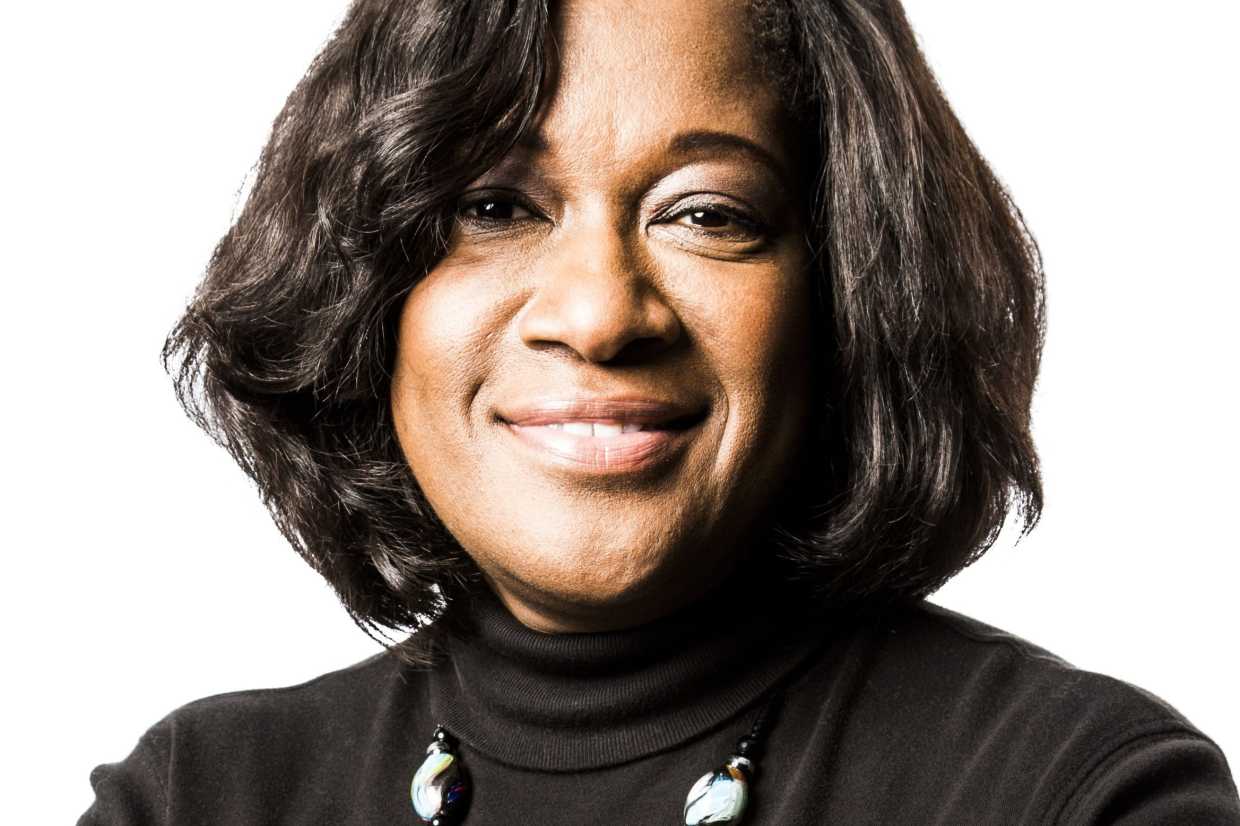
Jacky Wright
“When I started out to where we are now, those same barriers still exist,” says McKinsey’s first chief technology and platform officer, Jacky Wright, named the UK’s most influential Black person by The Powerlist in 2021, when reflecting on the report. “We’re having a discussion, but we still have a very long way to go.”
Sharon Prior, interim CIO at Card Factory, agrees that change has been slow, especially in the boardroom.
“Part of the challenge for women in tech is the low entry, certainly in the C-suite,” she says. “In the C-suite, I have very few peers, and even fewer who are Black. It hasn’t progressed over the last few years.”
Leonie, the agile delivery manager, believes that the lack of Black women working in technology is a multi-faceted societal problem, but suggests more must first be done to re-evaluate what career opportunities are available to young girls, many of whom are discouraged from math and science curricula from an early age.
She references how Black women, particularly those of Caribbean heritage, are often over-represented in the ‘5 Cs’ of cleaning, catering, clerical, cashiering, and childcare.
“IT is stereotypically seen as a career option for white male geeks, so I believe how we advertise roles and the language we use will attract Black women,” she says.
These comments follow on from those of Dr. Anne-Marie Imafidon, the computing prodigy, author, and CEO of Stemettes, who explained at last year’s Official CIO UK Summit that many non-minority colleagues simply don’t expect to see Black women working in science or technology professions.
“I think the biggest barrier is that image and what we see as success, what talent could look like,” she said, in-part explaining the backlash she experienced when appointed as the host of UK’s math TV show, Countdown.
Build diverse workplace culture with inclusion, psychological safety
Black women in technology say that high-profile events, such as George Floyd’s murder, Ketanji Brown Jackson’s appointment as the first black Supreme Court justice, and the Windrush scandal—when British citizens of West Indian heritage were wrongly detained, lost jobs or threatened with deportation—have started a conversation on diversity, but many feel that workplace culture is little better now than it was 10 years ago.
Yet Dolica Akello-Egwel, a software engineer at the Science and Technology Facilities Council in Swindon, Wiltshire, says she struggles to adapt to working in cliquey ‘Redditor’-type working cultures, while others interviewed felt they weren’t privy to watercooler conversations, and didn’t feel considered or included in organizing social gatherings, particularly those who didn’t drink alcohol or who had childcare or carer responsibilities.

Jessie Auguste, software engineer at Cybsafe.
Cybsafe
Some organizations are tailoring their social policies to be more inclusive, such as at security awareness training firm Cybsafe. Jessie Auguste, a software engineer at the behavioral risk platform company, says the firm’s technology team took part in an asynchronous Raspberry Pi advent calendar challenge over Christmas, building their own Pi project and communicating with each other on a Slack channel.
Yet if considering and including Black women in social gatherings is one issue, a bigger obstacle lies in conscious and unconscious bias.
Multiple Black women told CIO.com they faced discrimination in both fledgling and advanced careers, from being mistaken for colleagues, accused of being overly aggressive or emotional in meetings, and called out for their choice of attire and hairstyle. Some women spoke of their work being passed off as others, or of clients disbelieving their technical knowledge, experience or qualifications. A senior technology executive says she was once ignored by a vendor in a sales pitch, despite being the most senior executive in the room and having the final sign-off on budget.
“Myself and a person I mentor both got told we were both diversity hires,” says a deputy digital director in public sector. “And that there were people within the team who were upset we’d gotten hired and promoted, and they hadn’t. I heard that through the grapevine. She directly heard, ‘You don’t deserve the job.’”
In the BCS/CBF report, other Black female technology professionals said diversity hiring made it easier to get an interview or to be hired for a role, but, on occasion, the hiring manager took a ‘pet to threat’ attitude, whereby the hired woman is initially tokenised or underestimated, before being deemed a threat to the status quo.
Maryam Abdul Elahi, a senior product designer at Skyscanner, experienced the downsides of diversity hiring in a previous position. Upon leaving the organization, the recruiter told her that she had been a token hire.
“When you’re a token hire, none of what you say or do is of value,” she says. “You’re never put on any strategic projects or features. You’re almost relegated to the absolute bottom of the to-do list from a team or roadmap perspective. Then if you voice it, that’s a problem.”
Within this culture, Black women talk of the value of psychological safety through support from peers, allies, sponsors and employee resource groups (ERGs), and the need to context-switch between different personas to fit into a working culture not designed with them in mind.
“Everyone you’ve ever met from an underrepresented group is uncomfortable all the time,” notes a deputy digital director in UK government. She says she was the first Black professional there, and it took almost 15 years before she experienced a situation where she was in a room full of people who looked like her.
“I try and be my authentic self at work but there’s a piece, especially at more junior levels, you have to code-switch because I’ve heard through different networks that if you don’t speak a certain way, then people’s bosses have said to them, ‘You’re not going to get a promotion.’”
Card Factory’s Prior admits her ascension to the senior ranks meant fitting in by any means necessary—even taking up evening classes and listening to other types of music to be able to join conversations with colleagues.
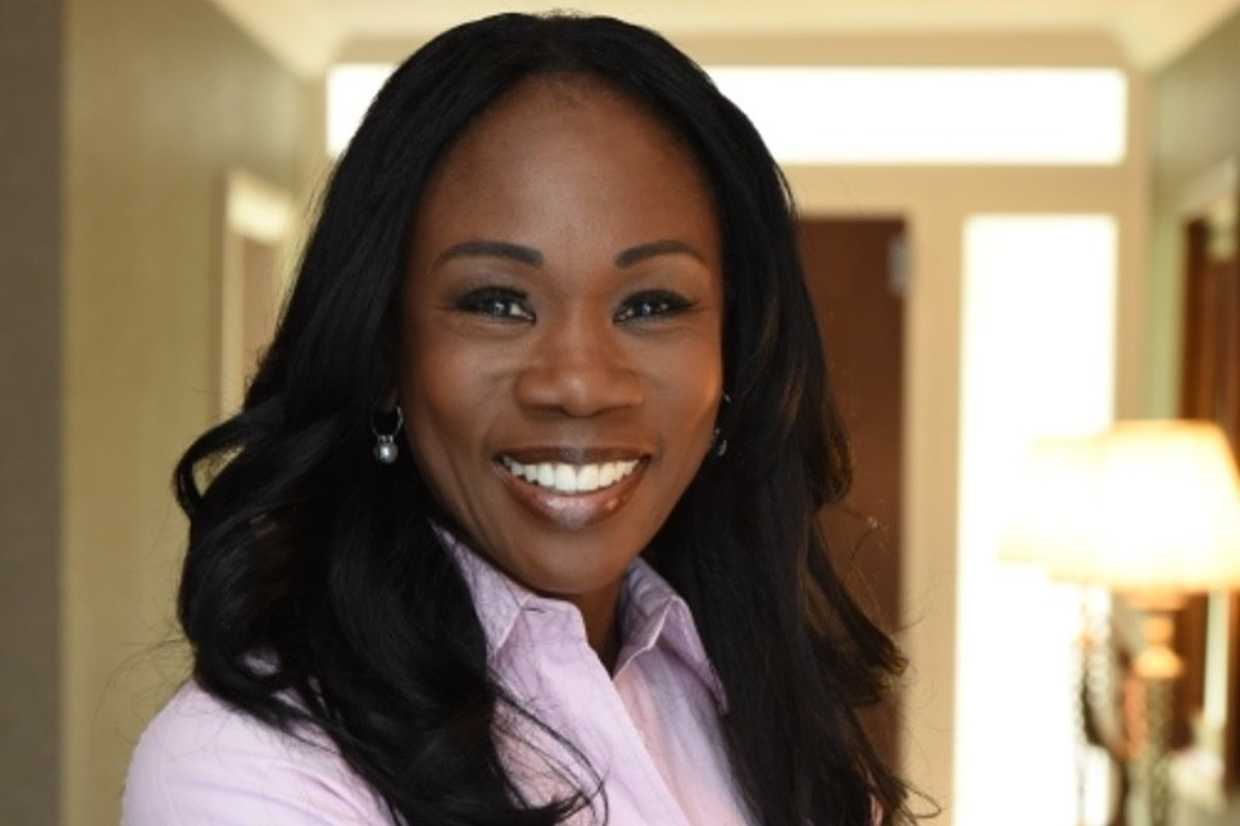
Sharon Prior, interim CIO at Card Factory.
Sharon Prior
“I would say 99% of white colleagues don’t mix socially outside their ethnic group,” says Prior, who has a career spanning senior IT roles at Ann Summers, Avon, GSK and the Post Office. “The only time they mix is when they’re at work. There’s almost an inherent mistrust [of others] because humans are historically tribal.”
It’s a comment which resonates with Lomi Aschwanden, ISV principal partner manager at Salesforce, when speaking to CIO.com in a conversation with The Women’s Association network.
“It’s common for people to categorise or put others into a box as a way to better understand them,” she says. “But sometimes this can do more harm than good.”
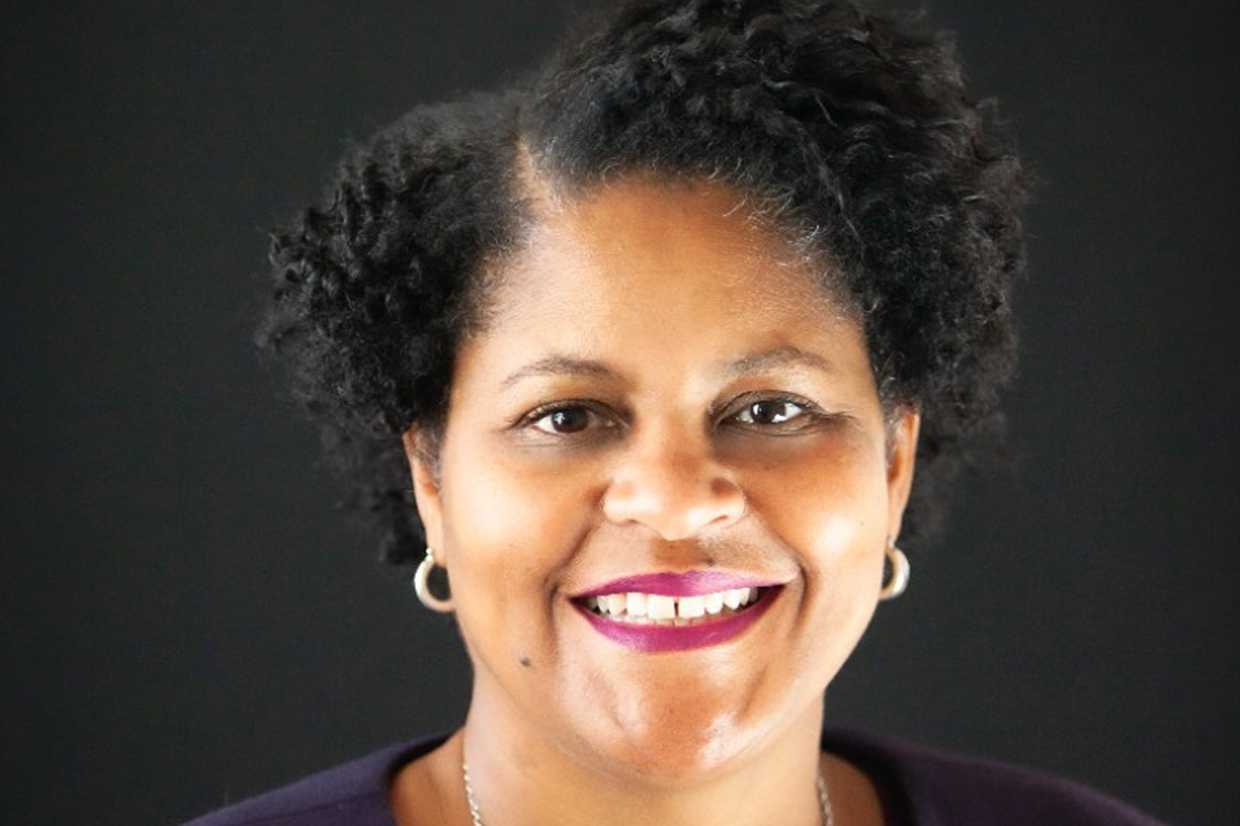
Monica Pemberton, CTO, Nacubo
Nacubo
As CIO, Prior believes that Black female technology leaders are subject to second guessing from senior leaders, and needing more time to build trust than white peers who have a “higher threshold” and “level of confidence” in the boardroom.
Monica Pemberton, CTO at Washington-based higher education professional development association Nacubo, agrees, saying that being resilient is essential to both progression and career longevity.
“I’ve done the grunt work, I’ve earned my stripes,” she says. “But you’ve got to have really thick skin and be confident in what you’re doing.”
The struggle for promotion and being heard
For Cybsafe software engineer Auguste, the visibility of being the only Black woman on the technology team can create undue pressure.
“You’ve got the responsibility of, ‘I need to perform well, because as an individual, I need to be perceived well,’” she says. “But it’s also, ‘I need to perform well and be liked, because I’m representing all Black women in technology now.’”
Yet Akello-Egwel says confidence can be hard to come by in a workplace that’s not always understanding or accommodating, especially when you feel like you’re not supposed to be there.
“I think people don’t appreciate that confidence can be contextual when you’re the odd one out at your job,” she says. “It takes a certain type of person to push through that discomfort, or find a way around it.”
In the BCS/CBF report, few Black women believed they were promoted based on individual performance alone, leading many to suggest they need more skills and experience than others to get that opportunity.
One IT service manager says she was at the point of burnout through the pandemic, working various roles, while volunteering and studying cloud certification training courses with AWS. Despite this, she felt she was blocked from further opportunities at her organization in the financial services industry.
“If it hasn’t worked once or twice, you’re like, ‘Okay, it’s a bit of anomaly,’” she says. “But when it hasn’t happened three or four times, it’s, ‘What more do I need to do?’”
This lack of progression can mean the inevitable, particularly when looking to develop your skillset and career opportunities, adds Prior.
“My key [to becoming CIO] was moving roles,” she says. “I couldn’t go one line up at an organization to become CIO, because you get pigeonholed. To get to CIO, I had to move roles—and quickly.”
A regular obstacle to achieving progression can be communication. Prior believes that contrasting cultures and upbringing often results in different communication styles, which may cause umbrage in more typical white, middle-class working environments. This is something a business relationship manager, who asked not to be named, saw in contrasting ways across the public sector. At one institution, she worked predominantly with working-class white men, but is now at a government department predominantly staffed by middle-class civil servants.
“[At the last organization], you’ll come across quite bullish; you’ll give as good as you get, and then you’ve got their respect,” she says. “Whereas here, if you do the same, you’re definitely aggressive. You’re stepping out of line, overly emotional or sensitive, or you just don’t know what you’re talking about.”
Skyscanner’s Abdul Elahi goes further, saying she missed out on an internal promotion at a previous company when the recruiting manager told her he didn’t like her body language in the interview. The hiring manager, a white male, later told her that promotion was a matter of if, rather than when.
“That was conscious bias,” she says. “You cannot sit through an interview, have four people on a panel, create feedback, and all of you look the same. And then think it’s okay to deliver that feedback.”
For Wright, a former CDIO at HMRC and CIO at BP, and more recently CDO at Microsoft US, Black women continue to be the least likely to be supported by senior leaders. “Even if you’re [in the workplace], you’re the least likely to be supported to thrive in the community,” she says.
The importance of genuine role modelling, sponsorship, allyship
Role modelling is critical, says Wright, but it must be done authentically to yield results. She urges organizations to “chisel away at it,” taking the responsibility and opportunity to profile technical people from all minority groups so aspiring students and future employees understand they’re there.
Many of the women interviewed here said it was somewhere between 15 and 40 years before they saw someone who looked like them in a work setting, and while they expressed the benefits of role modelling, there was some cynicism around their organization’s motivations behind it.
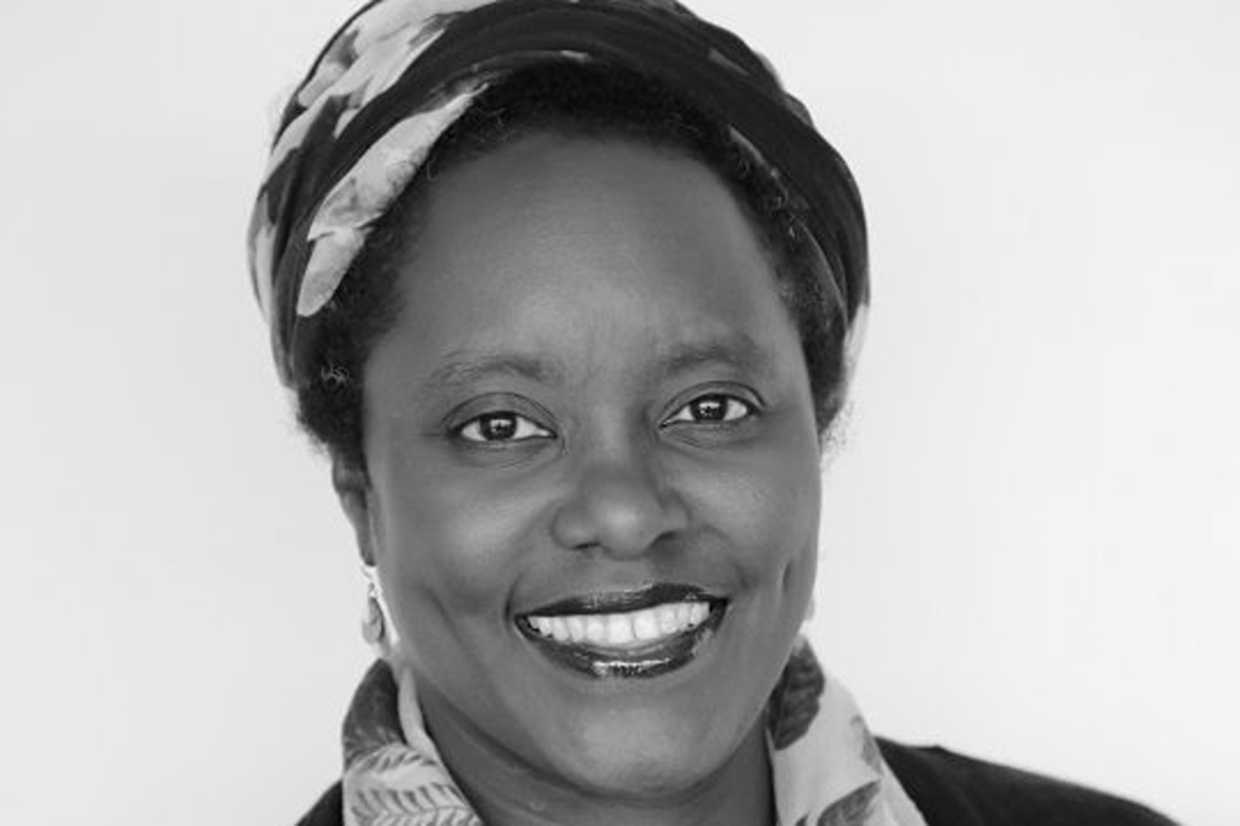
Bola Rotibi, analyst at CCS Insight.
CCS Insight
Some professionals saw the risk of being ‘used’ by HR leaders to display a diverse workforce, or by business leaders delivering against a D&I policy. Bola Rotibi, a long-time analyst at CCS Insight with over 25 years of experience in engineering, software development and IT analysis, says Black women should take the opportunity, nonetheless.
“That will always be a question,” says Rotibi, a chartered engineer by trade and now chief of enterprise research at the analyst firm. “But if you spend your time worrying about that, you’ll never get anything. My point would be don’t spend time thinking about it because you’re detracting from what you’re actually giving. The challenge for diversity, whether that’s women or ethnic, is imposter syndrome and getting over that. [You need to say] I’ve got every right to be here.”
Promoting internally can have a powerful impact on talent attraction and retention, with a deputy digital director in the UK public sector saying she received some 60 messages after promotion, many from colleagues newly incentivised to go for their own promotion. Yet a business relationship manager working in the UK’s civil service argues that getting the opportunity is simply the first step. True role autonomy and accountability is where the diversity conversation moves from optics to action.
“Once you get into those positions, it’s the scrutiny that goes behind that,” she says. “How much support are you actually getting? Are they recognising the work? Are you working 50 times harder than your colleagues, which is definitely yes for some people.”
Allyship and sponsorship are equally important, particularly for those Black women looking to move into more senior roles.
“The only way I’ve progressed is because of sponsorship from direct line managers, or their superior,” says Prior. “Without that, there’s no way I’d have progressed at all. It’s the same as when women got the vote. They needed the allyship of men. We need strong allies, but it has to be authentic. You can sniff out when it’s not.”
Many of the women here say they’ve benefitted from mentors, particularly from other women and women of color, but say that allyship and sponsorship can be done by anyone willing to be the voice of reason.
“There needs to be somebody else in the room who can speak up for you and make sure [discrimination] isn’t happening to you systematically, and isn’t being tolerated,” says Auguste. “Because it’s not something I could fix if it was happening to me. If they’re doing it well, it shouldn’t be performative. It’s doing something that’s difficult, even when it might not benefit you, when you’re being a true ally.”
How to improve black women in tech representation
The Black women in technology interviewed believe that improving representation in the IT industry starts with encouraging young Black girls on the varied career opportunities within IT, re-evaluating how graduate courses and entry-level technology jobs are advertised, how DEI policies align to corporate values, and the responsibilities and targets expected of senior business leaders. KPIs are essential to monitor organizational progress and make DEI its own accountable business initiative, while more must be done to move the needle on the gender pay gap—with gender- and name-blind recruitment a step in the right direction.
More must also be done to give black women an opportunity, whether they’re entering the industry for the first time, joining from another sector or returning after a career break. Cybsafe’s Auguste has seen such opportunities first-hand.
Having studied psychology at the University of Sheffield, England, she started in an entry-level marketing position at the security firm before moving into the customer success department. Through some fortune, and well-natured engineers, another opportunity fell her way.
“The engineers, off their own back, volunteered an evening a week to do an introduction to Python course,” she says. “It was from there I realised it was a possible career. Before that, I had no idea somebody without a computer science degree would be able to make that switch.”
A year on, and several YouTube and Google rabbit holes later, as well as working with CBF, Auguste was working in the engineering department. She believes that Black women of all ages are interested in pursuing technology careers, but are all often unaware where to start in a working world where employers typically favor those who can bring instant value.
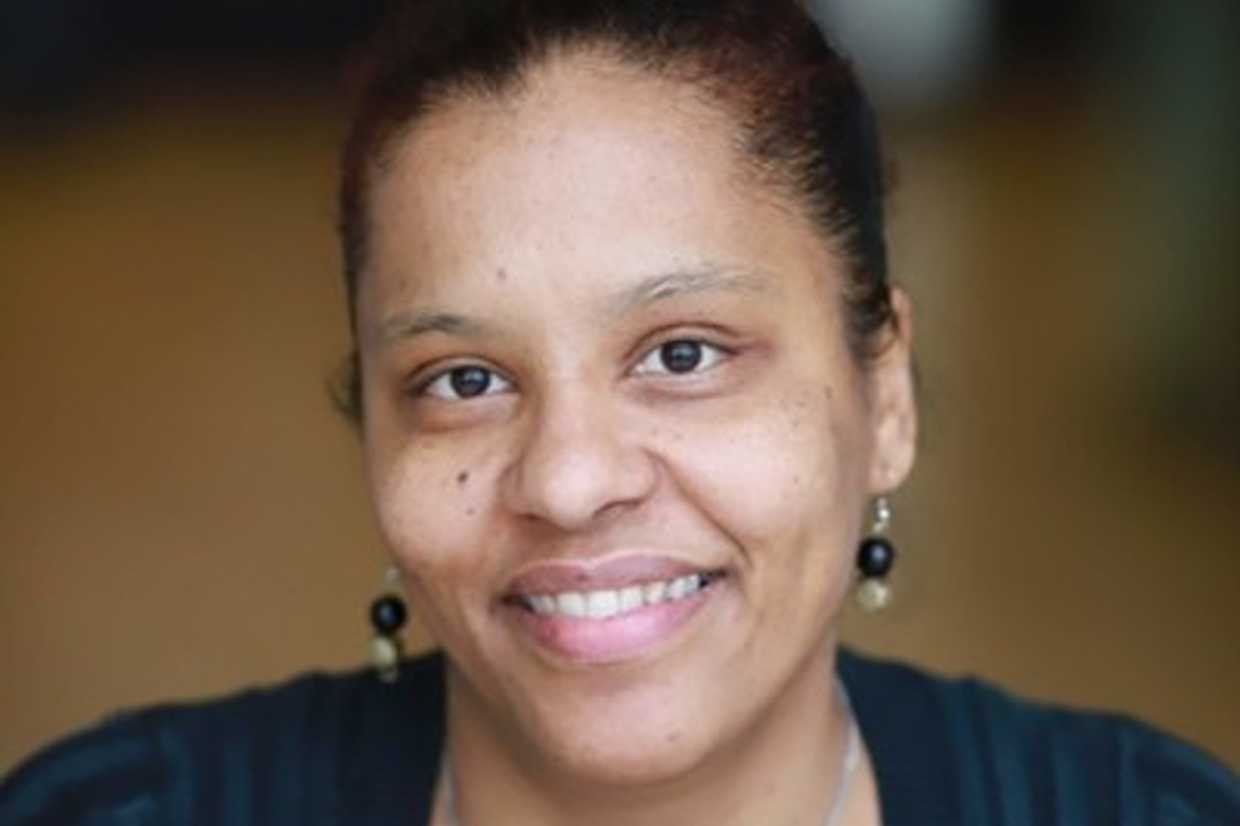
Lomi Aschwanden, ISV principal partner manager at Salesforce.
Salesforce
There’s a belief, too, that more inclusive and flexible workplaces will improve talent attraction and retention. Authentic mentors, allies and sponsors can help build confidence and enhance career prospects, while the growing number of external social communities and networks can only help Black tech women build better connections and allies in the long run. Salesforce’s Aschwanden, suggests ERGs in particular, such as the Black Organization for Leadership and Development (Bold) ERG at the SaaS CRM vendor, can help “find community, inclusivity and a safe space to connect with peers,” she says.
But education must not only take place in the classroom but the boardroom, too. At last year’s Official CIO Summit, Imafidon spoke of the need for young girls to imagine future careers in technology, but for business and technology leaders to see the value they can bring.
“How are you giving people that right chance or opportunity so that you, as a CIO, can benefit from untapping some of that talent, or a different perspective,” she said.
Imagining a future career is just the beginning. Nacubo’s Pemberton urges black tech women to be consistently proactive, emphasising working on one’s own personal branding, implementing shared values across the organization and its supply ecosystems, and building networks to help each other in their careers.
“Rather than complain about it, you’ve got to be part of the solution,” she says. “That’s why I’ve been doing volunteer work with Blacks in Technology and The Association of Women Technology Champions, trying to figure out what the disconnect is. I’m also mentoring students at HBCUs [historically black colleges and universities] and going into elementary schools, figuring out what the issues are.”
A simpler starting point for non-minority groups, says Prior, is to make sure Black women are in the room for the conversation, and then take the opportunity to listen and learn. “Listen more. Take all that noise and judgement out of it,,” she says. “Really listen to your Black colleagues.”
CIO, Diversity and Inclusion, IT Leadership, Women in IT
Read More from This Article: How the ‘diversity hire’ accusation and other barriers remain for Black women in tech
Source: News

